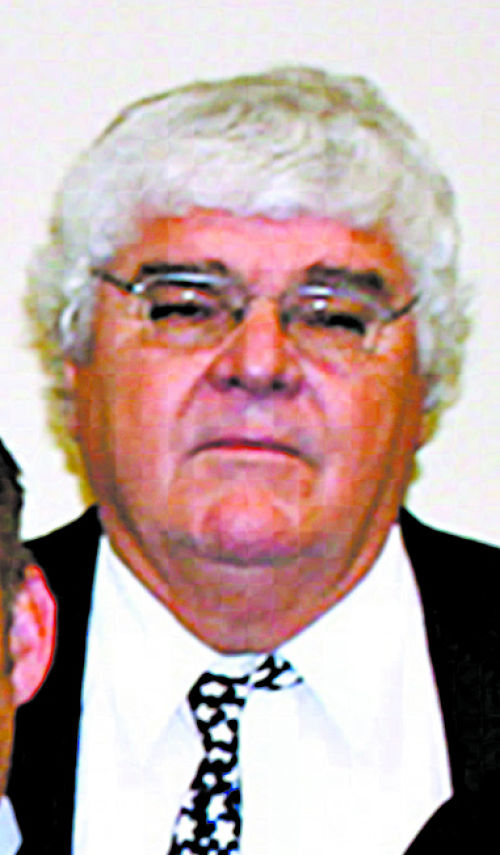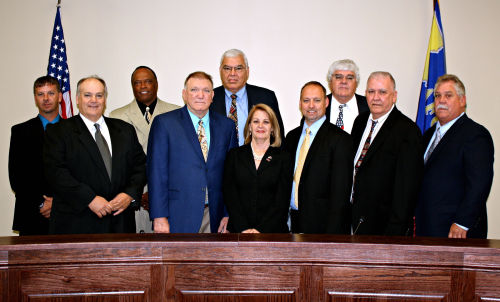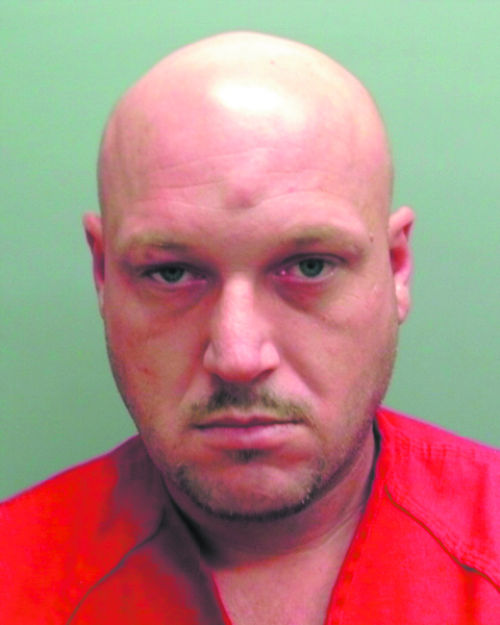
Laf. rejects revenue swap for new jail
November 20, 2013
Lafourche councilman’s comments cut deep
November 20, 2013Prosecutors and defense attorneys – for now – have settled some differences over an accused triple-murderer’s Lafourche Parish trial.
But issues that could have resulted in an indefinite hold on proceedings against David Brown remain, with continued potential for affecting not just his case, but also other high-profile prosecutions where the death penalty is sought. It is the third Tri-parish region case in as many months where the state’s inability or refusal to pay attorneys or experts has served as a broomstick in the spokes of justice.
The prosecution of Wilbert Thibodeaux, pending trial in St. Mary Parish in connection with the shooting deaths of Chitimacha Tribal Police Sgt. Rick Riggenbach and Charenton resident Eddie Lyons, has been delayed due to questions of expert funding. Prosecutors are seeking the death penalty.
The path to the lethal injection table of former deputy Chad Roy Louviere has undergone a detour in Terrebonne Parish after 14 years, as Judge John Walker determines whether bad lawyering regarding his 1999 trial necessitates new proceedings. Louviere pleaded guilty to first-degree murder in connection with the 1996 slaying of Pamela Ann Duplantis during a 25-hour hostage siege at a Houma bank. Payment of attorneys is not the prime issue in Louviere’s case, but financing of his case, to some degree, also figures into the equation.
Brown, 36, is accused of stabbing a woman and her two children to death in Lockport after sexually assaulting the mother and her eldest child, as well as attempting to kill the father of the children.
Jacqueline Nieves, 29; Gabriela, 7; and Izabela, 20 months, were killed on the second floor of their Lockport apartment Nov. 4, 2012. Carlos Nieves Jr., the husband and father, was asleep elsewhere in the apartment, which Brown allegedly set afire.
Lafourche District Attorney Cam Morvant, who is seeking the death penalty, clashed with Brown’s defense team this past week over the question of a delay. District Judge Jerome Barbera answered a central question that emerged – whether Louisiana’s inability to pay legal bills for defenders in a capital case should result in an indefinite hold on proceedings until payment is made – during a hearing.
That answer was a resounding “no.”
If not for a settlement of sorts between Morvant and the defense, Barbera’s ruling might have been kicked up to the 1st Circuit Court of Appeal, and possibly the state Supreme Court after that. The state public defender board was initially seeking a re-hearing on the matter before Barbera himself.
Attorney Chris Boudreaux, the 17th Judicial District Public Defender Board chairman, contracted with two death penalty-qualified attorneys, Jeffrey Smith and Dylan Utley, to represent Brown. The legal bills are estimated at this point to be around $250,000.
A cheaper option – use of one of several nonprofit specialty firms that provide capital defense, which are under contract with the state board – was not available at the time.
The three firms that might have been used were tied up with other cases and unable to take on a new client.
In addition, fees for a mitigation specialist and other experts deemed necessary for Brown’s defense were not paid.
Boudreaux’s local board did make a partial payment to the attorneys, however.
This prompted the defense team to ask Barbier for the clock to be stopped on Brown’s case, until proof could be furnished that all financial obligations would be met.
“To prevent a lack of funding from eviscerating an indigent defendant’s right to the effective assistance of counsel the Supreme Court gave district judges the power to convene a hearing to determine if funds were available for the defense, and if not, to stay the prosecution,” a written defense request to Barbera for a cold stop to the case states, echoing a Louisiana Supreme Court decision in a previous case. “We … order that unless adequate funds are identified and made available in a manner authorized by law as expressed in this opinion, upon motion of the defendants, the trial judge may halt the prosecution of these cases until adequate funds become available to provide for these indigent defendants’ constitutionally protected right to counsel or take other measures consistent with this opinion which protect the constitutional or statutory rights of the defendants.”
Complicating matters – or clarifying them, depending on one’s position – is the legislative action setting up the state’s public defender board, which mandates certain actions including funding by the state for experts and attorneys, requiring the state board to provide money.
Morvant maintains in his pleading that the arm of the state that deals with defending people who cannot afford an attorney cannot fail to make the money available and then state that the prosecution must be halted. While recognizing the right of the defendant to counsel, Morvant also notes the rights of victims guaranteed by the Louisiana Constitution and in state statutes.
“Family members of the deceased have both the constitutional right to be treated with fairness and to have a reasonably prompt conclusion of the case,” he argued. “Defendant’s statutory and administrative rights provided by the Public Defender Act cannot and do not trump the constitutional rights provided to victims.”
Barbera ruled in favor of the prosecution, and both sides prepared for the appeals process, with the first step being a re-hearing before Barbera.
But last week defense attorneys came up with a solution that precludes the need for re-hearing, at least for now.
The attorneys initially hired will – as they have requested – be relieved of the case. The public defender will have it handled by one of the nonprofit firms that handle capital cases at a lower cost, and are contracted directly with the state board.
State Public Defender Board Chairman Frank Neuner said he is satisfied for now with the enrollment as counsel of the Southeast Capital group.
The state board is in the process of doing an efficiency study to determine the best model of delivery for capital cases, and to address disparities in resources.
Lafayette, he noted, has 10 lawyers on contract while Baton Rouge has two.
“We need to study more efficient ways,” he said.
The death penalty was, in 2007, authorized by 37 states. That number has since dropped to 32, in large part because legislators have found its application too cumbersome and too expensive.
Meanwhile, Louisiana gives no indications of abolition. And defense lawyers say so long as that is the case, prosecutors can expect a long and protracted battle when death is to be used as a punishment.










